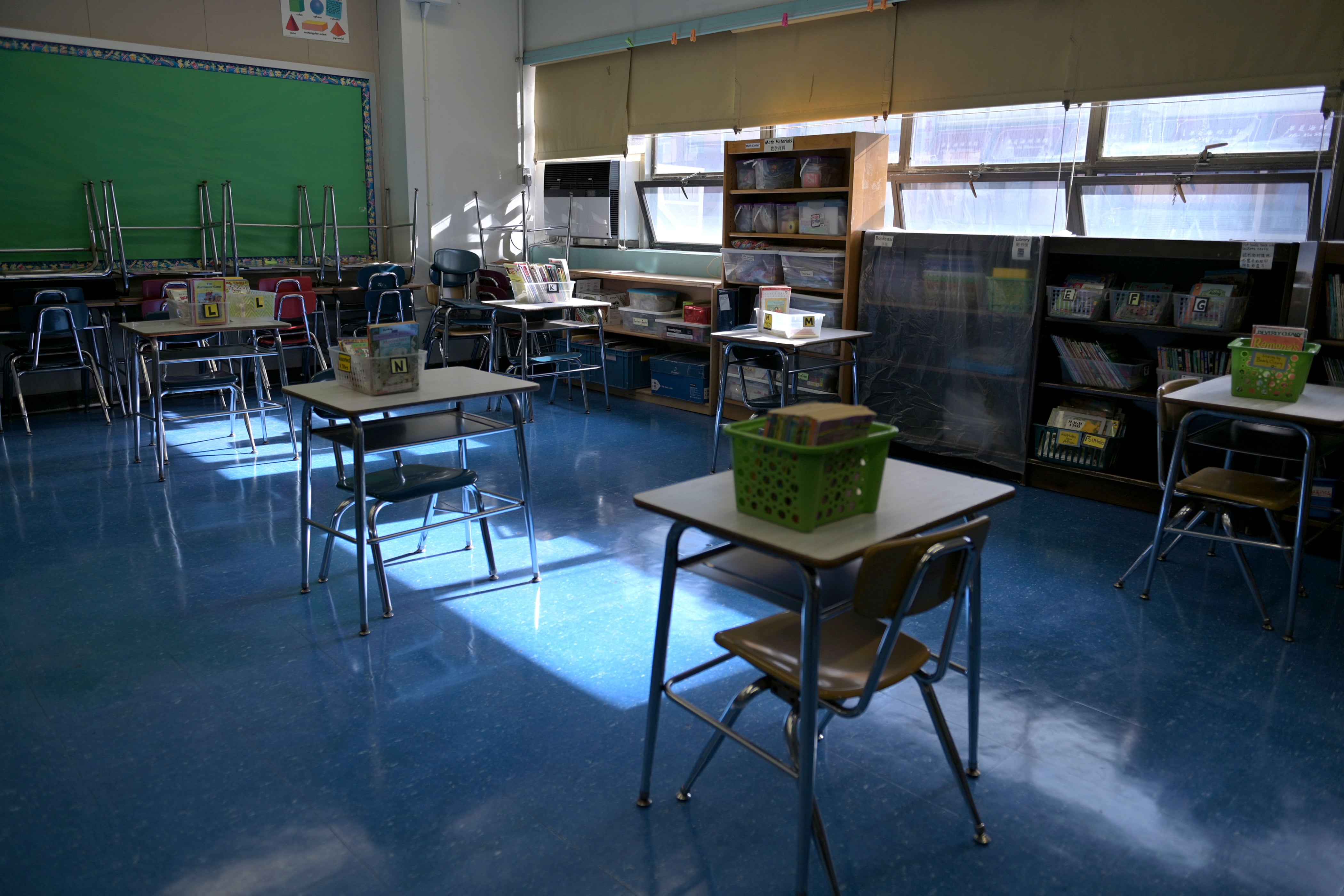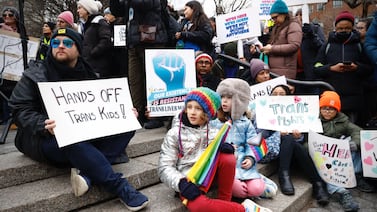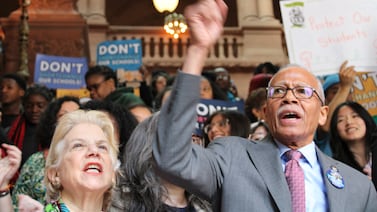Sign up for Chalkbeat New York’s free daily newsletter to keep up with NYC’s public schools.
New York education officials are mandating that schools develop procedures to notify parents at least a week in advance of lockdown drills.
The change is part of new regulations set to take effect in 2024-25 requiring that the drills be conducted in “a trauma-informed, developmentally and age-appropriate manner,” according to the amended rules adopted by the state’s Board of Regents on Monday.
To some advocates and lawmakers who for years have sought changes in lockdown drill requirements out of concerns about their impact on student mental health, the amended regulations come as a welcome step. But they fall short of the full reforms that advocates sought.
Currently, New York law requires that public schools conduct at least four lockdown drills each year — a number that critics argue was arbitrarily chosen. Earlier this year, some lawmakers introduced a bill that would lower the requirement to two drills, but it didn’t pass by the end of the legislative session.
That bill included a series of provisions related to school drills — including several that were adopted by the Regents on Monday, such as the requirement that that parents and staff get advance notice and that the drills be trauma-informed, meaning they avoid tactics that could cause or trigger a traumatic response, like using props or actors to simulate a school shooting.
Lockdown drills had occurred in 95% of public schools in the U.S. as of 2016, with at least 40 states requiring them, according to Everytown for Gun Safety, a nonprofit that advocates against gun violence. The organization has advised against conducting lockdown drills, noting they can cause “collateral consequences to school communities’ mental health and wellbeing.”
New York is one of just a handful of states that require four or more lockdown drills each year, and its students can in some cases experience twice as many drills as those in other states, according to an analysis from the Trace, a news organization that covers gun violence.
Under the newly amended regulations, schools cannot use “props, actors, simulations, or other tactics intended to mimic a school shooting” during drills. For schools that choose to conduct additional exercises involving such elements, the amended regulations note that they cannot be conducted on a school day or involve students without written parental consent.
Robert Murtfeld, a Manhattan parent who has been advocating for the lockdown drill reform for years, said the amended regulations are “a hugely positive step.” Though he still hopes to see state lawmakers lower the mandated number of drills and allow parents to opt their children out, Murtfeld added that the amended rules will be greatly beneficial in the coming school year.
“It’s absolutely transformative,” he said. “Last year, when the bill stalled, we started in September with nothing. Now, the bill has stalled, but we really have something quite comprehensive.”
Julian Shen-Berro is a reporter covering New York City. Contact him at jshen-berro@chalkbeat.org.







